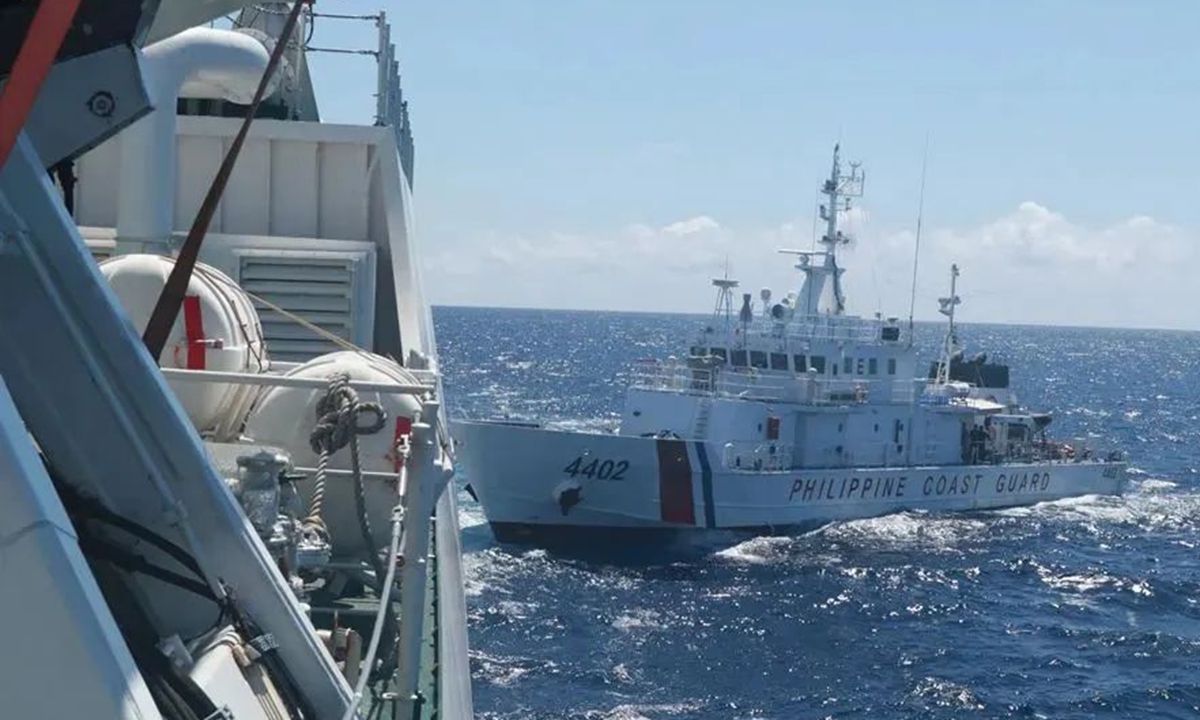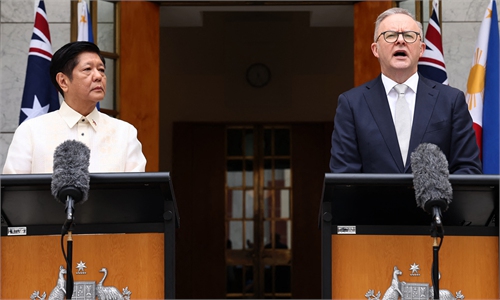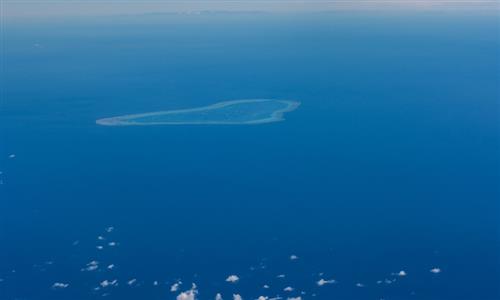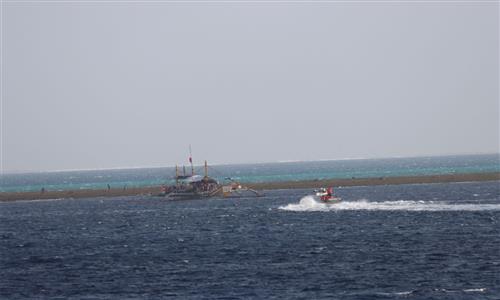The Philippines cannot catch 'big fish' of geopolitics in SCS: Global Times editorial

File Photo: China Coast Guard drives away Philippine vessels intruding into waters of China's Nansha Islands
In recent days, the Philippines has been making frequent statements regarding the South China Sea issue, sometimes expressing hope for "engagement" between the two sides, sometimes smearing China of "aggression;" sometimes talking about "peacefully" resolving disputes, and sometimes warning that the South China Sea could become a "flashpoint." How to understand these statements from the Philippines? Does the Philippines have the intention to return to the correct track of dialogue and negotiation with China to handle disputes, or is it using diplomatic rhetoric to rally other countries to engage activities that confront China in the South China Sea? Regardless of the Philippines' true intentions, its continuous hype of the South China Sea issue on various international occasions, attempting to use international public opinion to pressure China and erode its sovereignty and rights in the South China Sea, is obvious.
From last year's Ren'ai Jiao to this year's Huangyan Dao, the Philippines has formed a complete set of operations and propaganda for encroachment and provocation regarding the South China Sea issue. On one hand, it intentionally organizes fishermen, "maritime militia," and others to provoke, while on the other hand, it distorts these actions through the lens of Western media, portraying China as a "bully," thereby shaping an image of China as "a disruptor of regional peace and stability." Recently, it has even devised a narrative to smear and frame China's relevant actions, making baseless accusations such as "Chinese fishermen illegally use cyanide for fishing," and falsely labeling China's legitimate and reasonable safeguarding actions as "violent expulsion" and "signal jamming," among other things. In a sense, the Philippines, with its megaphone policy on the South China Sea issue, has fallen into a state of self-deception and addiction to distortion.
The right and wrong in the escalating friction of the South China Sea dispute between China and the Philippines are quite clear. The so-called Huangyan Dao issue was thrust upon the region by the Philippines and its backers, and its related claims are purely a provocative act akin to "deliberately causing trouble." The territory of the Philippines is defined by a series of international treaties. Huangyan Dao is beyond the limits of Philippine territory. The Philippines had never asserted territorial claims over Huangyan Dao until 1997. The Philippines' claim to sovereignty over Huangyan Dao based on its proximity to the Philippines, and its claim to sovereignty rights and jurisdiction over Huangyan Dao based on its location in the Philippines' exclusive economic zones, are both inconsistent with international law. Even the Philippines' favored South China Sea Arbitration, which was illegal, does not endorse the Philippines' claims.
As for the Philippines using China's goodwill to provoke troubles in the South China Sea, it can be described as a modern version of "The Farmer and the Snake." China had made proper arrangements for Filipino fishermen to fish around Huangyan Dao. However, China has never allowed Filipino government vessels to intrude into Huangyan Dao, which is completely different from "fishermen's livelihood." Which country's fishing boats and government vessels will carry a large number of Western journalists to fish or even land on the island? Does the Philippines catch a few small fish in the sea, or does it fish for "big fish" in geopolitical speculation? It is clear that it uses fishing as a pretext to provoke troubles at Huangyan Dao.
Everyone knows that major powers outside the region, in order to maintain their own hegemony, would love to see more chaos in the South China Sea. Even Western media acknowledges that their "dominant security perspective" sees "ASEAN's importance as a security counterbalance to China, to be press-ganged into that common cause." The so-called "common cause" is essentially sacrificing other countries' own national interests to cooperate with US strategies against China, which is exactly what regional countries are most resentful and opposed to. Malaysian Prime Minister Anwar Ibrahim during the ASEAN-Australia Summit on March 4 stated that if the West has problems with China, it should not impose it upon Malaysia. This is the second time he has expressed a similar view within two weeks, and other ASEAN leaders have also expressed similar opinions in the past. As a member of ASEAN, the Philippines is constantly eager to "invite the wolf into the house" and create "small circles," showing more warmth toward Western countries than regional countries. Will regional countries agree to this? Can they support it?
The spokesperson for the Chinese Embassy in the Philippines responded to the incorrect remarks made by the Philippines by posing six consecutive questions: Who is stirring up the situation in the South China Sea? Who is spreading the "China threat"? Who is ganging up in small blocks? Who invented "economic coercion"? Where did it originate? Who weaponizes economic power and gets addicted to sanctions? These six questions and their self-explanatory answers essentially summarize the recent turbulence in the South China Sea, which deserves reflection by the Philippines. We also hope that the Philippines' expression of "hope for a peaceful resolution to the maritime disputes with China" is not just a diplomatic rhetoric shifting the blame onto China.



